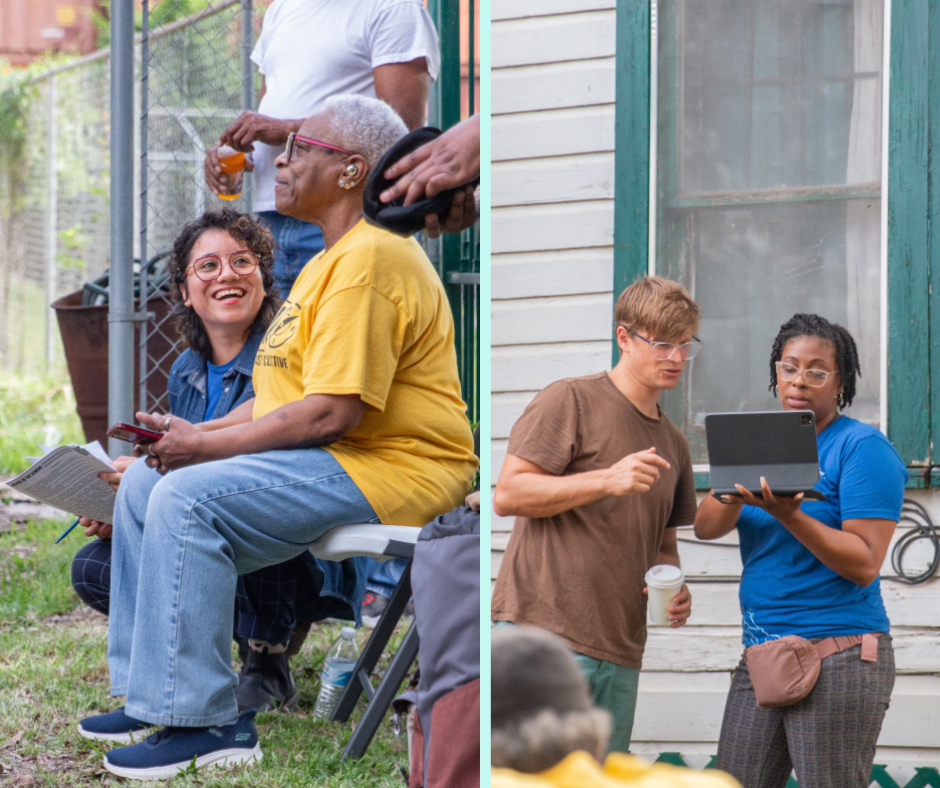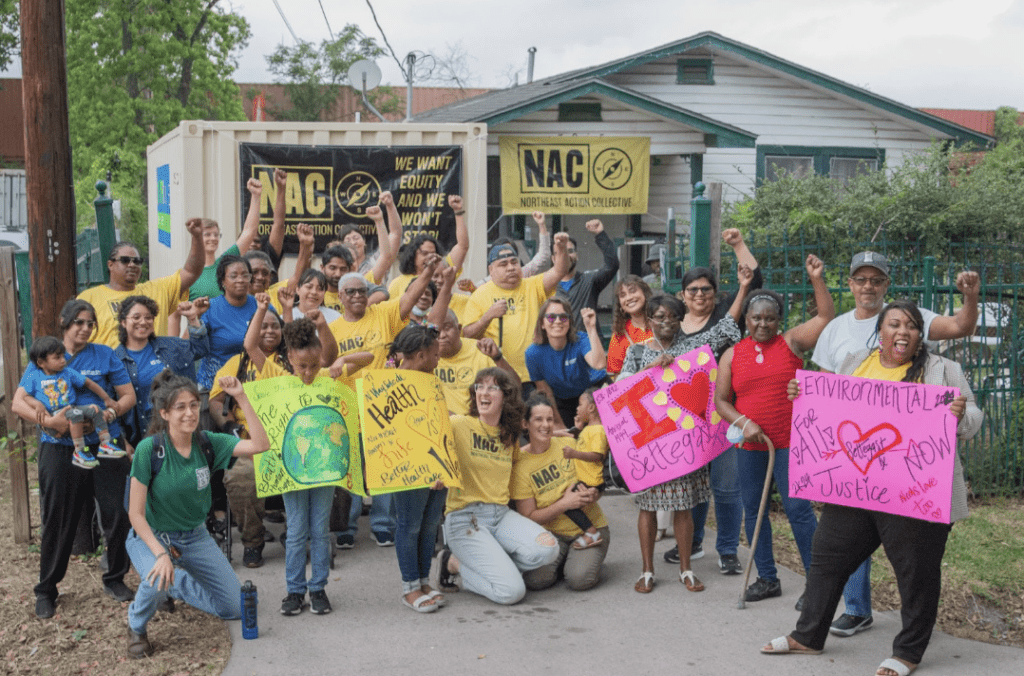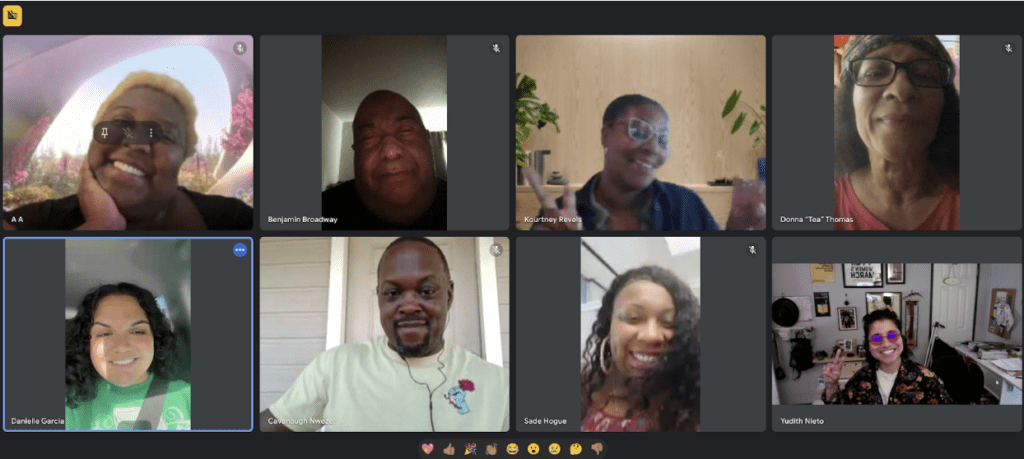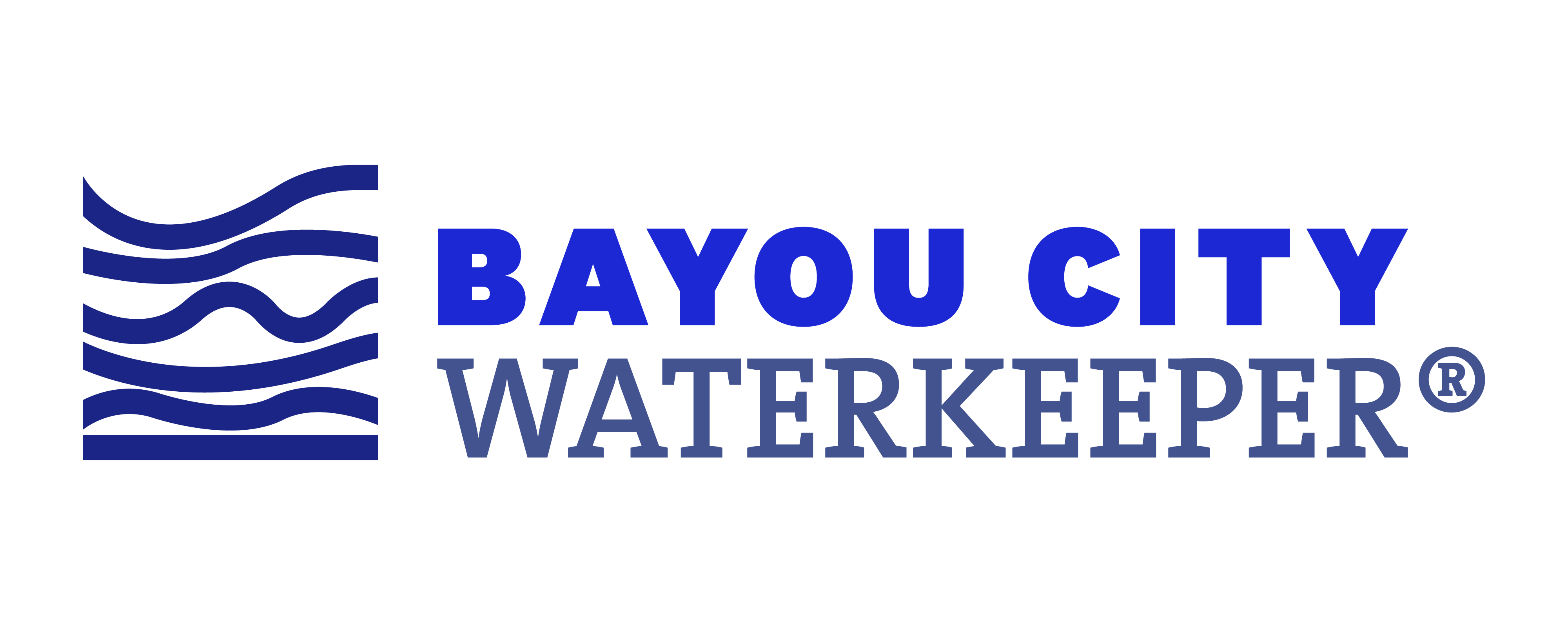This blog was authored by Kourtney Revels, Bayou City Waterkeeper’s Water Justice Organizer.
As a native Houstonian, a member of the Northeast Action Collective (NAC), a board member of West Street Recovery, and a passionate advocate for the equitable advancement of BIPOC communities, I am deeply committed to driving meaningful change in our region, much like this organization I represent.
A year ago, I was hired to lead organizing efforts in our community, with a focus on BCWK-identified Water Justice Zones, where community members are confronting compounded injustices, including flooding, sewage, and lack of green infrastructure which are rooted in systemic racism, including redlining and legacy pollution. My role has been to serve as a liaison between grassroots community organizations, community members, and Bayou City Waterkeeper. The organizing team consists of myself and our Organizing and Cultural Strategies Manager, Yudith Nieto, with the support of Danielle Garcia, our Education and Resource Hub Coordinator. This year has been a time of growth for the organization’s staff and deep learning for all of us.
Defining Organizing and Water Justice
Water justice addresses the legacy water problems that we are seeing across our watershed, the lower Galveston Bay, which is within greater Houston. It encompasses water availability, quality, and affordability issues, focusing on ensuring that everyone has equal opportunities to access and benefit from water resources. Organizing is a tool for empowering communities and moving them toward action. We see policy and community organizing as linked, aiming to build community-powered policy.
At its core, organizing for water justice means creating platforms for communities to voice their needs, mobilize resources, and advocate for systemic change. This approach ensures that those most affected by water issues are at the forefront of shaping solutions and driving policies that impact their lives.
Organizing Highlights
Below are highlights of our first year of organizing.
1. Sewage Advocacy in Houston
Bayou City Waterkeeper’s previous legal efforts which leveraged the Clean Water Act, resulted in a 2018 landmark consent decree, requiring the City of Houston to invest $2 billion in sewage infrastructure over 15 years. The agreement requires the City to meet strict timelines to eliminate releases of untreated sewage into local neighborhoods, parks, and bayous. Through community science work, we also launched a Justice in the Sewers map in 2022 to track sewage overflows in Houston. Unfortunately, the consent decree only covered the public part of the sewer system, and more than half of sewage infrastructure is on private property, which are known as private sewer laterals (PSLs).

This year, we launched organizing efforts to address investments needed for PSLs. My role has been to build community power and knowledge, particularly around PSLs, starting with on-the-ground community research through canvassing to assess sewage impacts in community members’ homes and PSL repairs needed in collaboration with West Street Recovery. This community research resulted in a PSL campaign that we partnered with the Northeast Action Collective and West Street Recovery to push the City of Houston to create a $20 million Private Sewer Lateral Fund for FY2025 to make investments in flood and sewer infrastructure programs that the City has thus far, failed to adequately maintain.
It kicked off with a rally hosted by the NAC and West Street Recovery, followed by four months of weekly advocacy at City Hall. For the 3rd anniversary of the Consent Decree, we hosted a press conference at the home of community member Sade Hogue, who was facing a PSL issue in her family home. At the press conference, we called on the City of Houston (COH) to address sewage infrastructure in its 2024 budget by creating a $20 million Private Sewer Lateral Fund for FY 2025.

The press tour, which marked the official launch of our PSL campaign, has been a significant step in holding the COH accountable for addressing the legacy sewage infrastructure challenges still faced by residents.
While stepping into this sewage advocacy provided a foundation for me to build, it also brought unique challenges. Coming from a background of grassroots organizing, I had to adapt to working within the structure of an organization like BCWK, which has traditionally approached advocacy through policy and legal avenues. However, BCWK’s commitment to centering community voices and addressing systemic water injustice has made it an ideal platform to elevate these issues in meaningful ways. This experience has been a powerful opportunity to merge grassroots organizing with BCWK’s expertise in water policy. Empowering us to build even deeper connections and mobilize communities toward lasting change.
2. Green Infrastructure and Nature- based solutions in BIPOC Communities
BCWK is currently on a 2-year study through the Environmental Ventures Project (EVP) at the Woods Institute for Sustainability with our partners, Drs. Elliot White and Khalid Osman at Stanford University to assess the value of wetlands upstream and the impact of wetland loss on downstream communities facing increased flood risk. Historic disinvestment and redlining have left frontline BIPOC communities with fewer green infrastructure solutions, worsening their vulnerability to flooding. In response, more community leaders in these areas are showing interest in nature-based solutions like rain gardens, pocket prairies, and bioswales. Earlier this year, we hosted focused groups in Baytown and Northeast Houston to understand the barriers to adopting green stormwater infrastructure (GSI) in these communities, as well as local perceptions and interests regarding GSI. This work will continue through this year to spring 2025 as we will conduct and analyze surveys to understand perceptions and barriers to Green Stormwater Infrastructure (GSI) in high flood-risk communities in Houston.
Organizing efforts in this work builds on increasing interest by some of our frontline communities in centering nature as a solution for flood protection, water quality, and health. Due to the ongoing need to expand our efforts and connect communities, our work in communities like Baytown requires deep learning from community experts. Deepening our relationships in this area is still in progress and we envision building on the momentum that has brought to pivotal moments. To educate community members, engage grassroots leaders, and empower our movement for water justice.
3. CRANe: Community Research And Action Network
As we launched our first year of community organizing, we also developed an advisory board of community leaders from the areas where our work is focused. Some of our community advisory board members are representatives of groups like the Fred Aguilar Promise Center, Northeast Action Collective, West Street Recovery, and Fort Bend Environmental, to name a few. Entering communities with guidance from local voices has been invaluable to our organizing principles, and it’s been a privilege to serve and work alongside those from neighborhoods like mine. This collaborative approach ensures our work is informed by the lived experiences of those directly impacted by water injustices. The CRANe grou consists of ten community members who live or work within the areas that our work is focused. To advise the organization on organizing and policy-related strategies, research with experts, co-learn, and share collective experiences around water injustices towards and building community power.

Looking Ahead
In the first year, it’s been vital to strengthen existing relationships and build trust. Moving forward, we aim to intentionally foster new connections that help us support and honor the efforts of community leaders working within their neighborhoods. As we continue to organize, educate, and mobilize frontline and fenceline communities, we will amplify their voices and equip them with the knowledge and resources needed to protect their waterways, homes, neighborhoods, access to nature, and infrastructure.
My goal as the Water Justice Organizer is to mobilize frontline communities, ensure that our policy demands reflect the priorities of those most impacted by injustices, and that these communities tell their stories and be heard. I’m excited to help build out BCWK’s organizing work while connecting communities to decision-makers and policy advocates to advance a more just and resilient future for Houston and our water resources.
Bayou City Waterkeeper protects the waters and people across the greater Houston region through bold legal action, community science, and creative, grassroots policy to further justice, health, and safety for our region.
